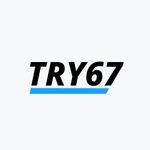Copy link to clipboard
Copied
This is the 2nd computer I've installed the software on, and the first time was just as bad.
What am I doing wrong?
Copy link to clipboard
Copied
Copy link to clipboard
Copied
Please state which version of Acrobat Pro are you using in your Windows 10 computers (I assume that is what is shipped in your Lenovos).
And briefly describe the steps of what exactly you're trying to achieve.
Thank you.
Copy link to clipboard
Copied
What kind of internet connection do you have?
The installer of Acrobat is quite big. If you have a slow connection it will take a while.
Copy link to clipboard
Copied
Copy link to clipboard
Copied
Hi,
You're using an Internet service over cellular data.
The problem that you're experiencing would be hard to believe if your jetpack device is using 4G LTE.
I would check in your connection settings what are the APN service settings defaulted to.
If your device support 4G LTE and you don't see it enabled, ensure that the device is not defaulting itself to 3G or below.
If you're dealing with download speed issues you should also contact support: https://www.verizonwireless.com/support/jetpack-4g-lte-mobile-hotspot-mifi-4620le-troubleshooting/#/...
Is always good to check with the service provider if there are cell towers around your area that may be affected with some kind of technical issues, partially down, or under repair.
However , if Verizon wireless confirms to you that there are no signal coverage issues around your area, there are a few things that you can try on your end.
You can try commercial support service for the jetpack signalbooster: https://www.signalbooster.com/pages/what-is-jetpack-signal-booster-and-how-does-it-work
OR,
See the Verizon support page to change, troubleshoot, and improve your device's performance settings: https://www.verizonwireless.com/support/knowledge-base-71937/
The key detail here is if you have a VPN service enabled in your jetpack device.
If you do, check with your VPN support website which VPNs servers are down or congested, and identify which ones are the fastest.
The download speed issue could be attributes to one or more things involved altogether:
- web browser that you're using together with the website that you're downloading from,
- the encryption handshaking process that takes place between your computer and a VPN server that is hosted in a different country,
- your jetpack provider automatic assignment of DNS server settings,
- the congestion of customers that may be using the same cell towers that you're using ,
- the congestion of users using the same VPN server if the VPN provider only supports a few servers
All of these things listed above could be related to the extremely slow download and upload speeds .
That said, if you're indeed using a VPN
- the first thing to do is to change to a VPN server that is the closest to you geographically as possible.
- The second thing is to change your LAN settings to enable DHCP only. Then assign the DNS addresses manually.
NOTE : In the verizon support link that I've provided for you above, see the section on how to manually change from automatic assignment of DNSs to manual and change the Primary DNS and Secondary DNS to the fastest ones available to date.
Refer to the slide below:
If encryption, online privacy and speed is of interest to you, I recommend OpenDNS.
IF, you really care about good speed and extreme Internet anonymity then definitely use Cloudflare DNSs.
If you only care about good, fast, reliable, but not so much about privacy, use Google DNSs.
These DNS providers will not let you down when it breakdown to speed, service up 100% of the time, and other perks.
3. The third thing to do is to check if your browser needs an update
4. you're downloading software from the Internet with a browser that may have Proxy-enabled addons, or other extensions. These may also need to be manually updated
5. It won't hurt to also re-verify if you're firewall and anti-virus software are not blocking essential services in your computer.
6. If you find discrepancies in your settings, disable them and try downloading again to rule out if this was part of the slow download issue.
7. If you don't have a VPN, you can still change the DNSs to see the difference in download and upload speeds. But don't take my word for it. Test it yourself.
9. Check your download and upload speeds again. Once you've successfully changed your DNSs go to:https://www.speedtest.net/ and check your speeds. Compare latency and data transfer speeds by choosing different DNSs a d select the one that works the best for you.
In addition to all said above, if you've made it this far, check here: https://browserleaks.com/ip and look into more in-depth troublsehooting of your VPN, your LAN, and web browser.
Be able to confirm that nothing is leaking out of your network.
If you discover that your network is not as secured as you thought, use the online tool above to help you see what else need to be secured in your network.
BONUS LINK:
https://thebestvpn.com/troubleshoot-vpn-connection/


